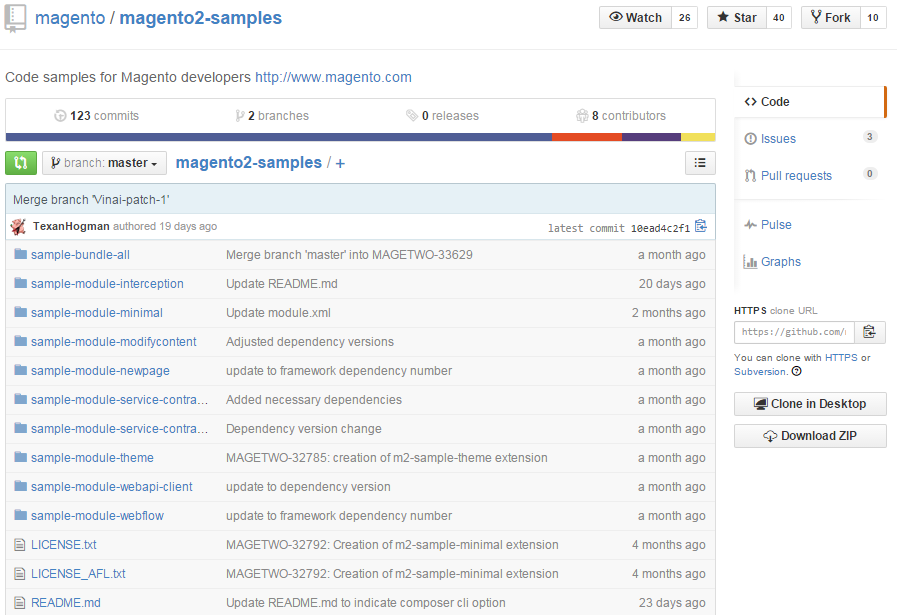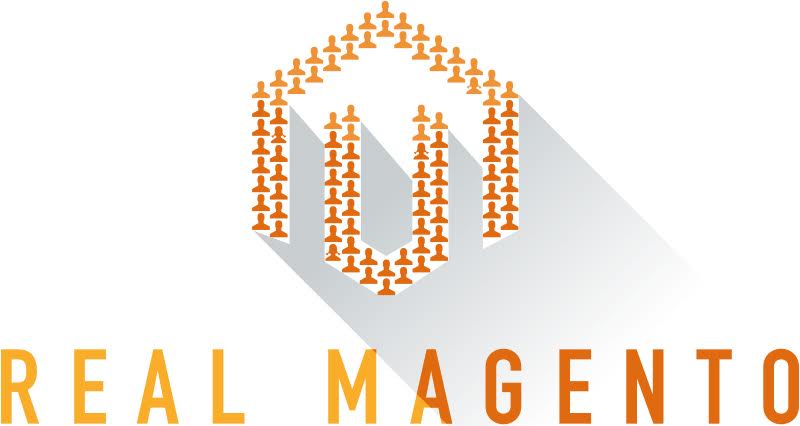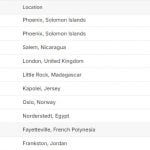The Ultimate Magento 2 Developer’s Resource List

In this post, we’ve gathered the best resources about Magento 2. If you are looking for important information related to the platform, you will find the most reliable Magento 2 resources below. The article is divided into 4 parts: Learning Magento 2; The Real Magento Community; Magento 2 Extensions; and Magento 2 Virtualisation. The Magento 2 Developer’s Resource List will be updated with the appearance of new resources related to Magento 2.
The Ultimate Magento 1 Developer’s Resource List
Everything about Magento 2 on Firebear
Packagist – The Magento 2 Package Repository

Table of contents
Learning Magento 2
First of all we’d like to draw your attention to the Magento 2 Developer Documentation. It provides all the necessary information for getting started with the second version of the platform. Other topics are divided into groups for system administrators and developers. All Magento 2 basics are described here: .

Besides, there are a lot of qualified developers sharing their thoughts about Magento 2. For instance, Dale Sikkema tells about basic concepts of every Magento 2 extension on Alan Kent’s blog: .

Another important source of information on Magento 2 features and enhancements is Alan Storm’s blog. Here – – he sheds light on such important aspect of Magento 2 as Object System. There are 5 different posts related to the topic on the blog.

You can also check what Cool Ryan thinks about Magento 2. His website is full of useful content, and there are a lot of frequent updates. Concepts and architecture, Magento 2 customization, debugging, Magento 2 modules and plugins, dependencies, observers, and themes are among key topics described by Ryan. You can check all this stuff here: .

There is also a dedicated category on the Inchoo blog – . You can learn more about migration, benchmarks, payment gateways, Magento 2 logging, dependency injection, and frontend architecture there.

In its turn offers tutorials, screencasts, and the latest news about Magento 2. For example, you are invited to check articles about Magento 2 installation and debugging from the homepage of the website.

If you have a budget for learning Magento 2, then there is an official video course called Fundamentals of Magento 2 Development. You can subscribe . A regular price for all 6 units during 90 days is $689.
Other useful Magento 2 resources and blogs:
- Karen Baker knows a lot about Magento 2 and always shares useful posts in a blog. There are some useful Magento 2 articles about migration from 1.X to 2.0. You can find all these and other materials here:
- It is also useful to surf on StackExchange while trying to master Magento 2. Although it is not a Magento 2 resource, but there is a separate section related to the new version of the popular ecommerce platform. You can learn about Magento 2 on StackExchange here: .
- Max Pronko is another prominent member of the community. We’ve already written about him in our Real Magento Community post, and his blog is also among top learning Magento 2 resources. You can find it here: .
- Mage2.PRO blog offers tons of useful Magento 2 tips, tutorials, and articles by Dmitry Fedyuk. You can find all the precious Magento 2 treasures here: .
- On a certain stage of learning Magento, you will have to start practical explorations. That’s where Magento 2 Sample Modules will be useful. Grab them from GitHub: .
- The Session Digital blog is also among reliable Magento 2 resources, since you can find a lot of useful articles and posts about the platform there. Hit the following link to dive deep into the world of Magento 2:
- Nathan McBride is a certified Magento developer with a huge experience and an interesting blog. Materials related to Magento 2 are posted here: .
- And of course we should mention the Head of Magento 2 Development and his blog among Magento 2 resources. Max Yekaterynenko knows a lot about the platform and shares his ideas here
- IBNAB is another reliable source of information about the second version of the platform. The company is famous for its extensions and other Magento projects. Additionally, there is a blog on the IBNAB website: .
- Another useful Magento 2 blog is .
- And don’t miss .
- One of important actions widely used within the Magento ecosystem is the installation of modules. You can significantly improve the default ecommerce capabilities of the platform via third-party extensions. We’ve even have a book which describes how to turn Magento CE int Magento EE via modules. If you are not familiar with Magento 2 modules installation, check this post: How to Install Magento 2 Modules.
- For more advanced coding tips check our Magento 2 Developer’s Cookbook.
- Other vital Magento 2 resources are: , , , , , and , as well as .
- All recent Magento 2 news are published and of course on our blog.
- If you are looking for reliable Magento 2 tutorials, then we recommend you to check
- And don’t forget about , since it is a very useful source of information on Magento 2.
- There is even a among other Magento 2 resources.
- If you are looking for a request flow, here it is: .
- – Magento 2 Plugin for PHPStorm IDE used by core developers.
- – PHPStorm plugin for Magento coders with a full description of Magento 2 installation.
- – tool for migrating code from Magento 1 to Magento 2.
- – a virtual user group for Magento developers that help coders to keep learning and growing professionally. Works on a monthly basis and gathers the best speakers in the community.
Magento 2 Extensions

The first public release of Magento 2 opened tons of new opportunities for extension developers. As a result, you can find a lot of true open source projects on GitHub, and collaboration within the Magento community regularly generates new solutions. All this stuff is extremely helpful for the understanding of the new platform’s core concepts and building other Magento 2 extensions. The best examples are gathered here: The Best Magento 2 Extensions. Since there are always something new on GitHub, we constantly update the digest with new Magento 2 modules.
Magento 2 Virtualization

Magento 2 relies on MySQL 5.6, which is a problem for running it in such environments as MAMP and XAMPP if they support MySQL 5.5 only. While switching between Magento 1 and Magento 2, this will be a real headache, but you can easily fix the problem with the aid of virtualization and Docker. The procedure is described here: How To Create A Virtual Machine For Magento.
Tell about your favourite blogs and websites about Magento 2 in comments.
The Real Magento Community

The Magento community is extremely huge. Being the most popular ecommerce solution, it gathers both developers and merchants, as well as professionals and enthusiasts. Though all this mass was disconnected in the beginning, everything has been changed within last years. Today, Magento community is huge, powerful, influential, and friendly to its members, so you can always get maximum from your interaction with it. We explain how to do this in the following post: The Power of Real Magento Community. The most important resources are:
- . Alan Kent is a Magento Chief Architect and this is his blog, where he shares a lot of interesting information about Magento 2.
- . Ashley Schroder is a Software Engineer from New Zealand. In his blog he writes about Magento development.
- . Alan Storm is know as a creator of Commerce Bug and an author of No Frills Magento Layout. He helps developers have fewer crap days via his blog.
- . BelVG is an ecommerce development company with more than 85 extensions in its portfolio. The company’s blog is full of useful materials about Magento 2.
- . Being a Certified Magento Solution partner, Atwix specializes in ecommerce software and Magento.
- . Cyrill Schumacher is a senior application architect and engineer with huge experience in Magento development. His blog provides a great opportunity to learn more about Magento 2.
- . Ben Marks is a Magento Evangelist and experienced developer. Don’t hesitate to visit his blog.
- . DemacMedia provides consistent ecommerce experience for years and Magento is among topics discussed on the company’s blog.
- . In addition to being a sys admin, programmer, and consultant, Kevin Schroeder is now the Technical Manager for Education and Consulting for Magento at MagentoU and ECG. And this is his blog.
- . As for EcomDev, the company was created by former Magento Inc. member. Now it provides various ecommerce solutions and helps big websites overcome their business and technical issues.
- . Manish Prakash runs this blog. With huge experience in Magento development, he shares a lot of useful thoughts and ideas on the website.
- . Inchoo exists since 2008 and its specialists work with Magento since version 1.0 emerged.
- . Fabrizio Branca is a Lead System Developer at AOE, a certified Magento developer plus, and a certified Magento frontend developer, who runs this blog.
- is the official blog of LexiConn – a reliable hosting provider with Magento-optimized services.
- is a publication that shares interesting, relevant links related to Magento once a week.
- offers Magento tutorials and tips from Developers.
- is another useful blog about Magento.
- is a blog by Nick Jones – the Magento Certified Developer.
- . Magestore produces reliable Magento extensions for years. The company also runs a blog about Magento with posts related to Magento 2.
- . Various solutions for Magento by Oleg Ishenko are stored here.
- provides magento extensions, tutorials, and tips. The company’s blog always has something new.
- is a living document which is regularly updated by new important things about Magento.
- – more thoughts by Alan Storm.
And don’t forget to check our Twitter list:
More resources soon…









